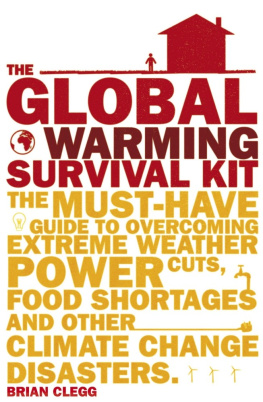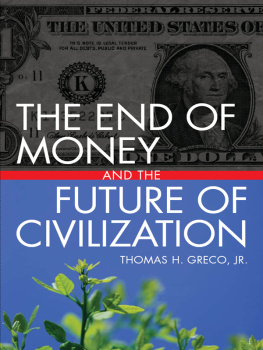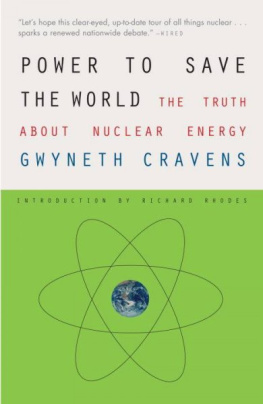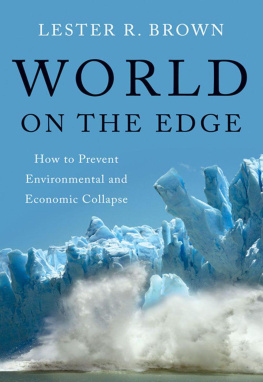Praise for Plan B
Lester Brown tells us how to build a more just world and save the planetin a practical, straightforward way. We should all heed his advice.
President Bill Clinton
a far-reaching thinker.
U.S. News & World Report
Its excitinga masterpiece!
Ted Turner
In tackling a host of pressing issues in a single book, Plan B 2.0 makes for an eye-opening read.
Times Higher Education Supplement
Lester Brown should receive a Nobel Peace Prize for his new book.
The Herald Mexico
A great book which should wake up humankind!
Klaus Schwab, World Economic Forum
Lester R. Brown, one of the worlds preeminent eco-economistshas a solution for dealing with the threatPlans must be periodically revised and refined, which Brown has done with insight and foresight in this volume.
Ode
a highly readable and authoritative account of the problems we face from global warming to shrinking water resources, fisheries, forests, etc. The picture is very frightening. But the book also provides a way forward.
Clare Short, British Member of Parliament
Lester R. Brown gives concise, but very informative, summaries of what he regards as the key issues facing civilization as a consequence of the stress we put on our environment. a valuable contribution to the ongoing debate.
The Ecologist
An enormous achievementa comprehensive guide to whats going wrong with earths life support system and how to fix it.
Grinning Planet
Plan B has three parts: restructuring the global economy, working to eradicate poverty and reversing environmental destruction. Tall orders, to be sure: but Plan B is here thoughtfully laid out to achieve the seeming impossibleand with an understanding of world trends and cultures too.
The Midwest Book Review
The best big-picture summary of our environmental situationboth the problems and the solutionsIve ever read.
Grist
Lester R. Brownoffers an attractive 21st-century alternative to the unacceptable business-as-usual path that we have been following with regard to the environment (Plan A), which is leading us to economic decline and collapse.
Thomas F. Malone, American Scientist
Browns overall action plan is both comprehensive and compelling.
Caroline Lucas, Resurgence
This book is an excellent update to the 2003 edition of Plan B and a valuable resource for understanding the challenges facing all people on Earth. Highly recommended.
S.J. Martin, Choice
A great book about ways to improve the environment and sustain economic progress.
St. Petersburg Times
P LAN B 3.0
O THER N ORTON B OOKS BY L ESTER R. B ROWN
Plan B 2.0: Rescuing a Planet Under Stress and a Civilization in Trouble
Outgrowing the Earth: The Food Security Challenge in an Age of Falling Water Tables and Rising Temperatures
Plan B: Rescuing a Planet Under Stress and a Civilization in Trouble
The Earth Policy Reader with Janet Larsen and Bernie Fischlowitz-Roberts
Eco-Economy: Building an Economy for the Earth
State of the World 1984 through 2001 annual, with others
Vital Signs 1992 through 2001 annual, with others
Beyond Malthus with Gary Gardner and Brian Halweil
The World Watch Reader 1998 editor with Ed Ayres
Tough Choices
Who Will Feed China?
Full House with Hal Kane
Saving the Planet with Christopher Flavin and Sandra Postel
Building a Sustainable Society
Running on Empty with Colin Norman and Christopher Flavin
The Twenty-Ninth Day
In the Human Interest
Earth Policy Institute is a nonprofit environmental research organization providing a plan for building a sustainable future. It seeks to reach a global constituency through the media and the Internet. In addition to the Plan B series, the Institute issues four-page Plan B Updates that assess progress in implementing Plan B. All of these can be downloaded at no charge from the EPI Web site.
Web site: www.earthpolicy.org
P LAN B 3.0
Mobilizing to Save Civilization
Lester R. Brown
EARTH POLICY INSTITUTE
W. W. NORTON & COMPANY
NEW YORK LONDON
Copyright 2008 by Earth Policy Institute
All rights reserved
The E ARTH P OLICY I NSTITUTE trademark is registered in the U.S. Patent and Trademark Office.
The views expressed are those of the author and do not necessarily represent those of the Earth Policy Institute; of its directors, officers, or staff; or of any funders.
The text of this book is composed in Sabon. Composition by Elizabeth Doherty; manufacturing by Courier Westford.
ISBN: 978-0-393-07091-0
W. W. Norton & Company, Inc., 500 Fifth Avenue, New York, N.Y. 10110
www.wwnorton.com
W. W. Norton & Company, Ltd., Castle House, 75/76 Wells Street, London W1T 3QT
Preface
When Elizabeth Kolbert was interviewing energy analyst Amory Lovins for a profile piece in the New Yorker , she asked him about thinking outside the box. Lovins responded, There is no box. There is no box. That is the spirit embodied in Plan B.
Perhaps the most revealing difference between Plan B 2.0 and Plan B 3.0 is the change of the subtitle from Rescuing a Planet Under Stress and a Civilization in Trouble to simply Mobilizing to Save Civilization. The new subtitle better reflects both the scale of the challenge we face and the wartime speed of the response it calls for.
Our world is changing fast. When Plan B 2.0 went to press two years ago, the data on ice melting were worrying. Now they are scary.
Two years ago, we knew there were a number of failing states. Now we know that number is increasing each year. Failing states are an early sign of a failing civilization.
Two years ago there was early evidence that the potential for expanding oil production was much less than officially projected. Now, we know that peak oil could be on our doorstep. Two years ago oil was $50 a barrel. As of this writing in late 2007, it is over $90 a barrel.
In Plan B 2.0 , we speculated that if we continued to build ethanol distilleries to convert grain into fuel for cars, the price of grain would move up toward its oil-equivalent value. Now that the United States has enough distilleries to convert one fifth of its grain crop into fuel for cars, this is exactly what is happening. Corn prices have nearly doubled. Wheat prices have more than doubled.
Two years ago, we reported that in five of the last six years world grain production had fallen short of consumption. Now, it has done so in seven of the past eight years, and world grain stocks are dropping toward all-time lows.
As the backlog of unresolved problems grows, including continuing rapid population growth, spreading water shortages, shrinking forests, eroding soils, and grasslands turning to desert, weaker governments are breaking down under the mounting stress. If we cannot reverse the trends that are driving states to failure, we will not be able to stop the growth in their numbers.
Some of the newly emerging trendssuch as the coming decline in world oil production, the new stresses from global warming, and rising food pricescould push even some of the stronger states to the breaking point.
On the economic front, China has now overtaken the United States in consumption of most basic resources. By 2030, when its income per person is projected to match that in the United States today, China will be consuming twice as much paper as the world currently produces. If in 2030 the countrys 1.46 billion people have three cars for every four people, U.S. style, China will have 1.1 billion cars. And it will be consuming 98 million barrels of oil per day, well above current world production.

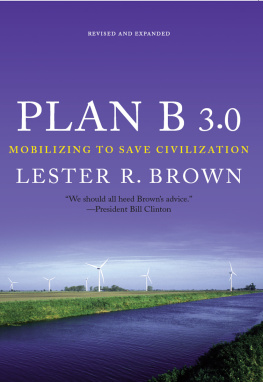
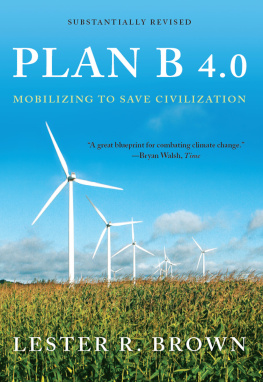

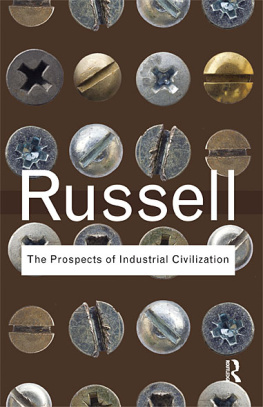
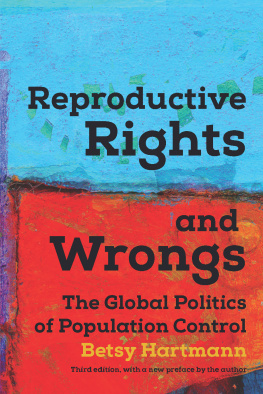
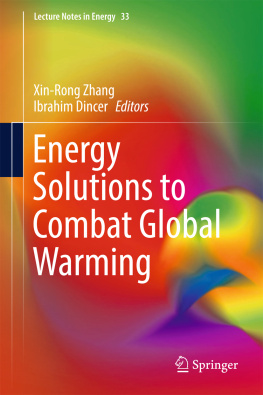
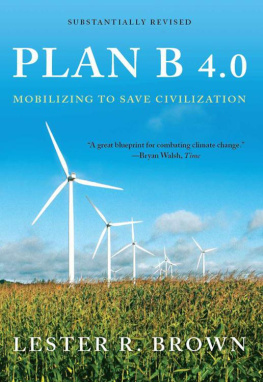
![David E Newton] - The global water crisis : a reference handbook](/uploads/posts/book/104432/thumbs/david-e-newton-the-global-water-crisis-a.jpg)
